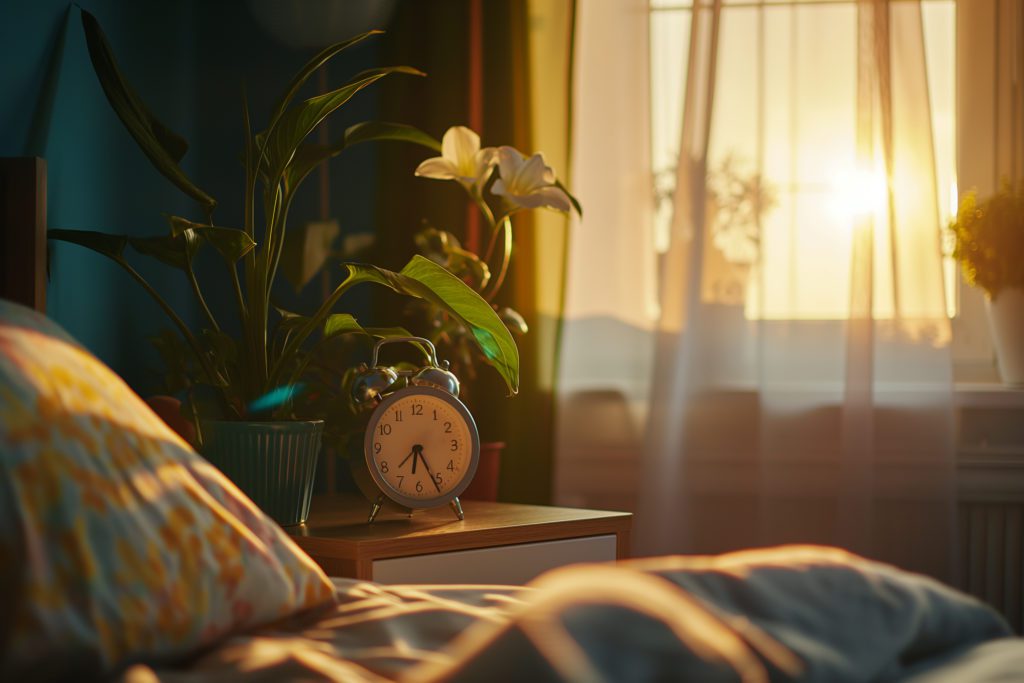
Balancing Late Nights and Sleep Quality: Weekend Sleep Strategies
Working late nights? Learn strategies to catch up on your sleep over the weekend, from planning ahead to taking purposeful naps.

Working late nights can be a real drag, but it gets even worse when you can’t catch up on the sleep that you have lost—even over the weekend! If you struggle with late nights and get less sleep than you need, you’re not alone. In fact, 32.5% of adults today fail to get adequate sleep consistently, leading to people needing to prioritize sleep over the weekend to recover the much-needed rest (Source: Journal of Clinical Sleep Medicine).
If you’re interested in truly making the most of your weekend so you get enough sleep, read on to discover some strategies we have found to be the most effective. From adhering to consistent sleep schedules to limiting your daytime naps, you can take several steps to catch up on your lost sleep. Before we get into the strategies, let’s first briefly look at why late nights can impact your sleep and what they do to your overall health and well-being.
How Late Nights Impact Sleep and Overall Health
Late nights can do a great deal to your overall health and limit how much rest you get regularly. You’re likely already aware of the dangers of sleep deprivation, but what do late nights do to your health? Unfortunately, they do not contribute to many benefits.
One study showed that people who night owls had a higher likelihood of dying of specific conditions, like cardiovascular disease and others, compared to those who went to bed earlier. It is only a 10% relative increase in risk, but the truth is clear: late nights contribute to worse health and poor sleep, so you should consider strategies to catch up on sleep to enjoy optimal health.
Strategies for Catching Up on Sleep on the Weekends
With an increased risk of poor health due to late nights, it’s important to take steps to catch up on sleep properly over the weekend. There are many ways to do this, such as going to bed earlier, sleeping later, or even limiting your daytime naps.
However, we’re going to look at the most common and easily implemented strategies so you can continue to have a consistent circadian rhythm and get adequate, uninterrupted rest. Let’s get into the first strategy: waking up at a consistent time every single day.
Wake Up at a Consistent Time
Even though you might think that waking up later can help you catch up on sleep, the opposite is unfortunately true. If you want to get over your sleep deprivation and catch up from the late nights, it’s actually better for you to keep your same sleep schedule rather than extend your sleep or wake time.
If you oversleep, you might find yourself feeling more depressed, and you may also become groggy. Additionally, those who oversleep might also be at risk of developing conditions including cardiovascular disease, diabetes, and even becoming obese over time.
So, if you want to catch up on sleep, prioritize getting to bed earlier rather than waking up later. Even if you get an additional hour or two of sleep because of an earlier bedtime, you’ll still be supporting your health and encouraging better energy instead of oversleeping and sleeping in. Sleeping thirteen hours, as lovely as it sounds, will not help you, but your sleep schedule will be consistent!
Plan Ahead to Recover on Sleep
Even though it is not advised to sleep in, you can still plan ahead to recover from lost sleep. That means taking the time to ensure you’re home at a reasonable hour on the weekends or having a relaxing evening at home.
Our bodies are great at helping us recover from lost sleep, even if we only slept four hours the night before. If you make the time for yourself to be home, rest, and relax, you will be able to get into bed earlier and make up for lost sleep.
Follow a Relaxing Bedtime Routine
Even if you can’t squeeze in another ten hours of sleep at once to make up for your poor rest throughout the week, you can relax during your bedtime routine so you’ll have better quality sleep. The best sleepers always have outstanding bedtime routines that help them relax, unwind, and be ready for bed (Source: Sleep Medicine and Physical Therapy).
So, spend time in a warm bath, journal if you need to clear your head, and find some activities that help you relax. The more that you implement, the more relaxed you’ll feel, and the better your sleep will be so you can recover from the week!
Limit Long Daytime Naps
It might be tempting to get home after a long workday and head straight to the couch or bed for a long nap, but did you know that longer naps can actually hurt more than help your sleep recovery? Short naps of around 20 minutes tend to be best for alleviating sleepiness, but you shouldn’t aim for much longer (Source: Harvard Health Publishing).
It can be incredibly tempting to nap and to alleviate the sleepiness you feel, but picture this: it’s Friday night, you’re absolutely exhausted, and you go to lie down at three in the afternoon. You wake up, and it’s nine at night. How will you ever get to bed? That’s why you should limit your daytime naps and focus on consistent sleep at night to help you recover instead.
Prioritize Your Rest and Recovery After Late Nights
While you can never truly recover from a bad week of late nights at the office or out with friends, there are steps you can take to support beneficial rest. You still need to wake up at a consistent time, but you can plan ahead and make your bedtime as relaxing as possible. You can eliminate the initial grogginess with short naps, but truthfully, the key is prioritizing your sleep. For more tips and tricks to enhance your sleep health, visit our website today to read more articles on the latest sleep research.

Written by
Marie Soukup
Marie Soukup is a seasoned copywriter, editor, and Integrative Nutrition Health Coach with a certificate from the Institute of Integrative Nutrition (IIN). With years of experience working with brands across diverse industries, Marie is passionate about holistic health and crafting compelling content.
Download Pillow
Get help
Press & News
Legal
Connect
X (Twitter)
Company
Copyright © Neybox Digital Ltd.



